Fleurs du Mal Magazine


Or see the index

Claire
Quoi donc ! la vôtre aussi ! la vôtre suit la mienne !
O mère au coeur profond, mère, vous avez beau
Laisser la porte ouverte afin qu’elle revienne,
Cette pierre là-bas dans l’herbe est un tombeau !
La mienne disparut dans les flots qui se mêlent ;
Alors, ce fut ton tour, Claire, et tu t’envolas.
Est-ce donc que là-haut dans l’ombre elles s’appellent,
Qu’elles s’en vont ainsi l’une après l’autre, hélas ?
Enfant qui rayonnais, qui chassais la tristesse,
Que ta mère jadis berçait de sa chanson,
Qui d’abord la charmas avec ta petitesse
Et plus tard lui remplis de clarté l’horizon,
Voilà donc que tu dors sous cette pierre grise !
Voilà que tu n’es plus, ayant à peine été !
L’astre attire le lys, et te voilà reprise,
O vierge, par l’azur, cette virginité !
Te voilà remontée au firmament sublime,
Échappée aux grands cieux comme la grive aux bois,
Et, flamme, aile, hymne, odeur, replongée à l’abîme
Des rayons, des amours, des parfums et des voix !
Nous ne t’entendrons plus rire en notre nuit noire.
Nous voyons seulement, comme pour nous bénir,
Errer dans notre ciel et dans notre mémoire
Ta figure, nuage, et ton nom, souvenir !
Pressentais-tu déjà ton sombre épithalame ?
Marchant sur notre monde à pas silencieux,
De tous les idéals tu composais ton âme,
Comme si tu faisais un bouquet pour les cieux !
En te voyant si calme et toute lumineuse,
Les coeurs les plus saignants ne haïssaient plus rien.
Tu passais parmi nous comme Ruth la glaneuse ,
Et, comme Ruth l’épi, tu ramassais le bien.
La nature, ô front pur, versait sur toi sa grâce,
L’aurore sa candeur, et les champs leur bonté ;
Et nous retrouvions, nous sur qui la douleur passe,
Toute cette douceur dans toute ta beauté !
Chaste, elle paraissait ne pas être autre chose
Que la forme qui sort des cieux éblouissants ;
Et de tous les rosiers elle semblait la rose,
Et de tous les amours elle semblait l’encens.
Ceux qui n’ont pas connu cette charmante fille
Ne peuvent pas savoir ce qu’était ce regard
Transparent comme l’eau qui s’égaie et qui brille
Quand l’étoile surgit sur l’océan hagard.
Elle était simple, franche, humble, naïve et bonne ;
Chantant à demi-voix son chant d’illusion,
Ayant je ne sais quoi dans toute sa personne
De vague et de lointain comme la vision.
On sentait qu’elle avait peu de temps sur la terre,
Qu’elle n’apparaissait que pour s’évanouir,
Et qu’elle acceptait peu sa vie involontaire ;
Et la tombe semblait par moments l’éblouir.
Elle a passé dans l’ombre où l’homme se résigne ;
Le vent sombre soufflait ; elle a passé sans bruit,
Belle, candide, ainsi qu’une plume de cygne
Qui reste blanche, même en traversant la nuit !
Elle s’en est allée à l’aube qui se lève,
Lueur dans le matin, vertu dans le ciel bleu,
Bouche qui n’a connu que le baiser du rêve,
Ame qui n’a dormi que dans le lit de Dieu !
Nous voici maintenant en proie aux deuils sans bornes,
Mère, à genoux tous deux sur des cercueils sacrés,
Regardant à jamais dans les ténèbres mornes
La disparition des êtres adorés !
Croire qu’ils resteraient ! quel songe ! Dieu les presse.
Même quand leurs bras blancs sont autour de nos cous,
Un vent du ciel profond fait frissonner sans cesse
Ces fantômes charmants que nous croyons à nous.
Ils sont là, près de nous, jouant sur notre route ;
Ils ne dédaignent pas notre soleil obscur,
Et derrière eux, et sans que leur candeur s’en doute,
Leurs ailes font parfois de l’ombre sur le mur.
Ils viennent sous nos toits ; avec nous ils demeurent ;
Nous leur disons : Ma fille, ou : Mon fils ; ils sont doux,
Riants, joyeux, nous font une caresse, et meurent. –
O mère, ce sont là les anges, voyez-vous !
C’est une volonté du sort, pour nous sévère,
Qu’ils rentrent vite au ciel resté pour eux ouvert ;
Et qu’avant d’avoir mis leur lèvre à notre verre,
Avant d’avoir rien fait et d’avoir rien souffert,
Ils partent radieux ; et qu’ignorant l’envie,
L’erreur, l’orgueil, le mal, la haine, la douleur,
Tous ces êtres bénis s’envolent de la vie
A l’âge où la prunelle innocente est en fleur !
Nous qui sommes démons ou qui sommes apôtres,
Nous devons travailler, attendre, préparer ;
Pensifs, nous expions pour nous-même ou pour d’autres ;
Notre chair doit saigner, nos yeux doivent pleurer.
Eux, ils sont l’air qui fuit, l’oiseau qui ne se pose
Qu’un instant, le soupir qui vole, avril vermeil
Qui brille et passe ; ils sont le parfum de la rose
Qui va rejoindre aux cieux le rayon du soleil !
Ils ont ce grand dégoût mystérieux de l’âme
Pour notre chair coupable et pour notre destin ;
Ils ont, êtres rêveurs qu’un autre azur réclame,
Je ne sais quelle soif de mourir le matin !
Ils sont l’étoile d’or se couchant dans l’aurore,
Mourant pour nous, naissant pour l’autre firmament ;
Car la mort, quand un astre en son sein vient éclore,
Continue, au delà, l’épanouissement !
Oui, mère, ce sont là les élus du mystère,
Les envoyés divins, les ailés, les vainqueurs,
A qui Dieu n’a permis que d’effleurer la terre
Pour faire un peu de joie à quelques pauvres coeurs.
Comme l’ange à Jacob, comme Jésus à Pierre,
Ils viennent jusqu’à nous qui loin d’eux étouffons,
Beaux, purs, et chacun d’eux portant sous sa paupière
La sereine clarté des paradis profonds.
Puis, quand ils ont, pieux, baisé toutes nos plaies,
Pansé notre douleur, azuré nos raisons,
Et fait luire un moment l’aube à travers nos claies,
Et chanté la chanson du ciel dam nos maisons,
Ils retournent là-haut parler à Dieu des hommes,
Et, pour lui faire voir quel est notre chemin,
Tout ce que nous souffrons et tout ce que nous sommes,
S’en vont avec un peu de terre dans la main.
Ils s’en vont ; c’est tantôt l’éclair qui les emporte,
Tantôt un mal plus fort que nos soins superflus.
Alors, nous, pâles, froids, l’oeil fixé sur la porte,
Nous ne savons plus rien, sinon qu’ils ne sont plus.
Nous disons : – A quoi bon l’âtre sans étincelles ?
A quoi bon la maison où ne sont plus leurs pas ?
A quoi bon la ramée où ne sont plus les ailes ?
Qui donc attendons-nous s’ils ne reviendront pas ? –
Ils sont partis, pareils au bruit qui sort des lyres.
Et nous restons là, seuls, près du gouffre où tout fuit,
Tristes ; et la lueur de leurs charmants sourires
Parfois nous apparaît vaguement dans la nuit.
Car ils sont revenus, et c’est là le mystère ;
Nous entendons quelqu’un flotter, un souffle errer,
Des robes effleurer notre seuil solitaire,
Et cela fait alors que nous pouvons pleurer.
Nous sentons frissonner leurs cheveux dans notre ombre ;
Nous sentons, lorsqu’ayant la lassitude en nous,
Nous nous levons après quelque prière sombre,
Leurs blanches mains toucher doucement nos genoux.
Ils nous disent tout bas de leur voix la plus tendre :
« Mon père, encore un peu ! ma mère, encore un jour !
« M’entends-tu ? je suis là, je reste pour t’attendre
« Sur l’échelon d’en bas de l’échelle d’amour.
« Je t’attends pour pouvoir nous en aller ensemble.
« Cette vie est amère, et tu vas en sortir.
« Pauvre coeur, ne crains rien, Dieu vit ! la mort rassemble.
« Tu redeviendras ange ayant été martyr. »
Oh ! quand donc viendrez-vous ? Vous retrouver, c’est naître.
Quand verrons-nous, ainsi qu’un idéal flambeau,
La douce étoile mort, rayonnante, apparaître
A ce noir horizon qu’on nomme le tombeau ?
Quand nous en irons-nous où vous êtes, colombes !
Où sont les enfants morts et les printemps enfuis,
Et tous les chers amours dont nous sommes les tombes,
Et toutes les clartés dont nous sommes les nuits ?
Vers ce grand ciel clément où sont tous les dictames,
Les aimés, les absents, les êtres purs et doux,
Les baisers des esprits et les regards des âmes,
Quand nous en irons-nous ? quand nous en irons-nous ?
Quand nous en irons-nous où sont l’aube et la foudre ?
Quand verrons-nous, déjà libres, hommes encor,
Notre chair ténébreuse en rayons se dissoudre,
Et nos pieds faits de nuit éclore en ailes d’or ?
Quand nous enfuirons-nous dans la joie infinie
Où les hymnes vivants sont des anges voilés,
Où l’on voit, à travers l’azur de l’harmonie,
La strophe bleue errer sur les luths étoilés ?
Quand viendrez-vous chercher notre humble coeur qui sombre ?
Quand nous reprendrez-vous à ce monde charnel,
Pour nous bercer ensemble aux profondeurs de l’ombre,
Sous l’éblouissement du regard éternel ?
Victor Hugo
(1802-1885)
Claire
(Poème)
• fleursdumal.nl magazine
More in: Archive G-H, Archive G-H, Hugo, Victor, Victor Hugo
A daughter’s struggle to keep her family alive, through poverty, homelessness and incarceration
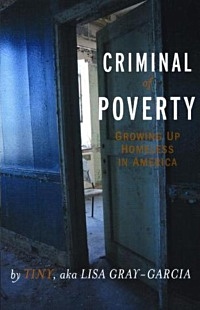 Eleven-year-old Lisa becomes her mother’s primary support when they face the prospect of homelessness. As Dee, a single mother, struggles with the demons of her own childhood of neglect and abuse, Lisa has to quickly assume the roles of an adult in an attempt to keep some stability in their lives.
Eleven-year-old Lisa becomes her mother’s primary support when they face the prospect of homelessness. As Dee, a single mother, struggles with the demons of her own childhood of neglect and abuse, Lisa has to quickly assume the roles of an adult in an attempt to keep some stability in their lives.
“Dee and Tiny” ultimately become underground celebrities in San Francisco, squatting in storefronts and performing the “art of homelessness.” Their story, filled with black humor and incisive analysis, illuminates the roots of poverty, the criminalization of poor families and their struggle for survival.
“Criminal of Poverty lays bare the devastating effects of inheriting a life of poverty, as well the real redemption and power in finding your voice.” – Michelle Tea, author of Rose of No Man’s Land and Valencia
“Tiny’s indomitable spirit comes to life in her amazing story of poverty and homelessness, reaching into and teaching our hearts and minds. With her flawless descriptions of the pain of living in the margins of the richest country in the world, she opens up an important window onto a reality looked upon by many but truly seen by few, augmenting our capacity for empathy and action in an area so in need of social change. Bravo Tiny, for your gift to us all! Punto!!!” – Piri Thomas, author of Down These Mean Streets
Lisa Gray-Garcia (www.tinygraygarcia.com)
is a journalist, poet and community activist. She is the founder of POOR magazine and the PoorNewsNetwork (PNN), a monthly radio broadcast and an online news service focused on issues of poverty and racism.
(www.poormagazine.org/)
Criminal of Poverty
Growing Up Homeless in America
Lisa Gray-Garcia, aka Tiny
Publisher City Lights Foundation Books
Paperback, 2007
278 pages
ISBN-10 1931404070
ISBN-13 9781931404075
List Price $19.95
books to read before you die
fleursdumal.nl magazine
More in: #Editors Choice Archiv, - Book Stories, Archive G-H, Archive G-H, Art & Literature News, MUSEUM OF PUBLIC PROTEST, Racism, The Ideal Woman
Ellen Hinsey’s new book-length sequence, The Illegal Age, is a powerful investigation into the twentieth-century’s dark legacy of totalitarianism and the rise of political illegality.
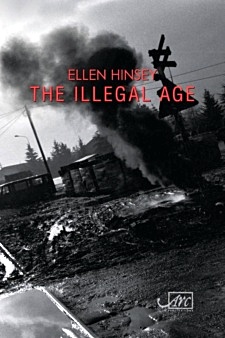 It explores the enduring potential for human beings to set neighbour against neighbour and commit final acts of violence. A book of lyrical reflection and prophesy, The Illegal Age chronicles the arrival of a new, disquieting reality unfolding in our midst.
It explores the enduring potential for human beings to set neighbour against neighbour and commit final acts of violence. A book of lyrical reflection and prophesy, The Illegal Age chronicles the arrival of a new, disquieting reality unfolding in our midst.
As Marilyn Hacker has written, “In dialogue with Celan, Szymborska, Milosz… this is a daring text – for its political acuity, and for its demonstration of the power in poetry to recount, remember, move the heart while opening the mind.”
Written in parallel with her first-hand research into the rise of authoritarianism carried out over the last decade, Hinsey’s volume warns that – rather than an “Age of Anxiety” – we may indeed be facing the start of the “Illegal Age”.
Ellen Hinsey was born in 1960 in Boston, Massachusetts. For the last two decades she has lived in Europe. She received a Bachelor of Fine Arts degree from Tufts University and a graduate degree from Université de Paris VII. She has taught at the French graduate school the Ecole Polytechnique and currently teaches at Skidmore College s Paris program. She is the international correspondent for The New England Review.
Hinsey’s work is concerned with history, ethics and democracy. Her first-hand accounts and analyses of the impact of the 2012 Russian presidential elections, the 2010 Polish presidential plane crash, Hungarian politics, Václav Havel’s ethical legacy and post-1989 German reconstruction have been published in The New England Review. A selection of these essays are included in her book <ik>Mastering the Past: Contemporary Central and Eastern Europe and the Rise of Illiberalism (Telos Press, 2017). Her current work addresses global authoritarianism.
Hinsey’s first book, Cities of Memory, draws on her experiences at the Berlin Wall on the weekend of November 9, 1989, as well as in Prague during the Velvet Revolution. The book received the Yale Series Award and was published by Yale University Press in 1996. Her second book, The White Fire of Time (Wesleyan University Press, 2002 / Bloodaxe Books, 2003), written after a family tragedy, is an exploration of ethics and renewal.
Later, you will realize that compromise is the wood that burns
Most brightly in the hour before regret.
But by then, all the doors will have been marked in yellow chalk.
Still, let us not pass each other this final time, without recognition,
Without looking each other in the eye.
Remember: in the ink-light of testimony, a record may still be kept.
Ellen Hinsey (fragment)
The Illegal Age
by Ellen Hinsey (Author)
PBS Autumn Choice 2018
Publisher: Arc Publicationas
July 2018
120 pages
Language: English
ISBN-10: 191146938X
ISBN-13: 978-1911469384
Product Dimensions: 15 x 2.2 x 21 cm
Hardcover £13.99
Paperback £10.99
new books
fleursdumal.nl magazine
More in: - Book News, Archive G-H, Art & Literature News, EDITOR'S CHOICE
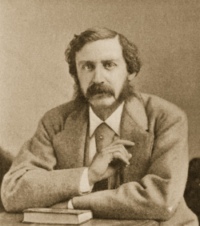
What the Bullet sang
O Joy of creation,
To be!
O rapture, to fly
And be free!
Be the battle lost or won,
Though its smoke shall hide the sun,
I shall find my love–the one
Born for me!
I shall know him where he stands
All alone,
With the power in his hands
Not o’erthrown;
I shall know him by his face,
By his godlike front and grace;
I shall hold him for a space
All my own!
It is he–O my love!
So bold!
It is I–all thy love
Foretold!
It is I–O love, what bliss!
Dost thou answer to my kiss?
O sweetheart! what is this
Lieth there so cold?
Bret Harte
(1839-1902)
What the Bullet sang
fleursdumal.nl magazine
More in: Archive G-H, Archive G-H, Bret Harte, CLASSIC POETRY, WAR & PEACE
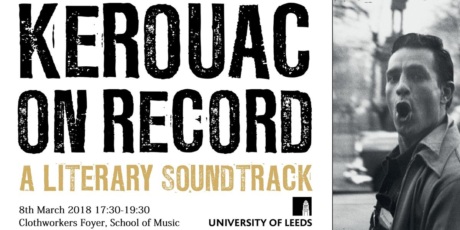
Out now:
Kerouac on Record ◊ A Literary Soundtrack
Edited by Simon Warner and Jim Sampas
Co-edited by Jack Kerouac’s nephew, including pieces written by Kerouac himself as well as interviews from major literary and musical figures including Allen Ginsberg, Lee Konitz and David Amram, Kerouac on Record gives a unique insight into how Kerouac brought his passion for jazz to his full creative output.
Kerouac on Record is the touchstone for the music of Kerouac – Kerouac’s love for music, the depth of its influence on his work, and the influence that his work continues to extend to waves of contemporary musicians, from David Bowie and Janis Joplin to Sonic Youth. It is a book rife with the work of cultural icons, essential for any fan of the Beat Generation and popular music alike.
About Kerouac on Record
He was the leading light of the Beat Generation writers and the most dynamic author of his time, but Jack Kerouac also had a lifelong passion for music, particularly the mid-century jazz of New York City, the development of which he witnessed first-hand during the 1940s with Charlie Parker, Dizzy Gillespie and Thelonious Monk to the fore.
The novelist, most famous for his 1957 book On the Road, admired the sounds of bebop and attempted to bring something of their original energy to his own writing, a torrent of semi-autobiographical stories he published between 1950 and his early death in 1969.
Yet he was also drawn to American popular music of all kinds – from the blues to Broadway ballads – and when he came to record albums under his own name, he married his unique spoken word style with some of the most talented musicians on the scene.
Kerouac’s musical legacy goes well beyond the studio recordings he made himself: his influence infused generations of music makers who followed in his work – from singer-songwriters to rock bands.
Some of the greatest transatlantic names – Bob Dylan and the Grateful Dead, Van Morrison and David Bowie, Janis Joplin and Tom Waits, Sonic Youth and Death Cab for Cutie, and many more – credited Kerouac’s impact on their output.
In Kerouac on Record, we consider how the writer brought his passion for jazz to his prose and poetry, his own record releases, the ways his legacy has been sustained by numerous more recent talents, those rock tributes that have kept his memory alive and some of the scores that have featured in Hollywood adaptations of the adventures he brought to the printed page.
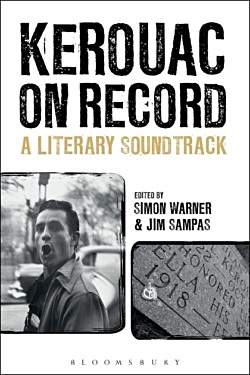 1. Jack Kerouac’s Jazz Scene Jim Burns – 2. 2nd Chorus: Blues: Jack Kerouac Larry Beckett – 3. Duet for Saxophone and Pen: Lee Konitz and the Direct Influence of Jazz on the Development of Jack Kerouac’s ‘Spontaneous Prose’ Style Marian Jago Interview 1: Lee Konitz Marian Jago – 4. Jack Kerouac Goes Vinyl: A Sonic Journey into Kerouac’s Three LPs: Poetry for the Beat Generation; Blues and Haikus; and Readings by Jack Kerouac on the Beat Generation Jonah Raskin – 5. Art Music: Listening to Kerouac’s ‘Mexico City Blues’ A. Robert Lee Interview 2: David Amram Pat Thomas – 6. Beat Refrains: Music, Milieu and Identity in Jack Kerouac’s The Subterraneans, the Metro-Goldwyn-Mayer Film Adaptation Michael Prince – 7. Bob Dylan’s Beat Visions (Sonic Poetry) Michael Goldberg – 8. Carrying a Torch for Ti Jean Paul Marion Interview 3: Richard Meltzer Michael Goldberg – 9. The Grateful Dead: Jack Manifested as Music Brian Hassett – 10. Driver Mark Bliesener – 11. Jim Morrison/Angel of Fire Jay Jeff Jones – 12. Light is Faster than Sound: Texans, the Beats and the San Francisco Counterculture Holly George-Warren – 13. Hit the Road, Jack: Van Morrison and On the Road Peter Mills – 14. Detecting Jack Kerouac and Joni Mitchell: A Literary/Legal (Not Musicological) Investigation into the Search for Influence Nancy Grace – 15. Kerouac and Country Music Matt Theado – 16. ‘Straight from the Mind to the Voice’: Spectral Persistence in Jack Kerouac and Tom Waits Douglas Field Interview 4: Barney Hoskyns Simon Warner – 17. From Beat Bop Prosody to Punk Rock Poetry: Patti Smith and Jack Kerouac; Literature, Lineage, Legacy Ronna Johnson Poems: Marc Zegans Interview 6: Allen Ginsberg Pat Thomas – 18. Tramps Like Them: Jack and Bruce and the Myth of the American Road Simon Morrison Interview 5: Graham Parker Pat Thomas – 19. Punk and New Wave James Sullivan – Interview 7: Jim DeRogatis on Lester Bangs James Sullivan – 20. The Tribute Recordings Jim Sampas and Simon Warner – Jack Kerouac Biography – Jack Kerouac Discography Dave Moore – Tribute Discography – Kerouac/Cassady Song List Dave Moore/Horst Spandler
1. Jack Kerouac’s Jazz Scene Jim Burns – 2. 2nd Chorus: Blues: Jack Kerouac Larry Beckett – 3. Duet for Saxophone and Pen: Lee Konitz and the Direct Influence of Jazz on the Development of Jack Kerouac’s ‘Spontaneous Prose’ Style Marian Jago Interview 1: Lee Konitz Marian Jago – 4. Jack Kerouac Goes Vinyl: A Sonic Journey into Kerouac’s Three LPs: Poetry for the Beat Generation; Blues and Haikus; and Readings by Jack Kerouac on the Beat Generation Jonah Raskin – 5. Art Music: Listening to Kerouac’s ‘Mexico City Blues’ A. Robert Lee Interview 2: David Amram Pat Thomas – 6. Beat Refrains: Music, Milieu and Identity in Jack Kerouac’s The Subterraneans, the Metro-Goldwyn-Mayer Film Adaptation Michael Prince – 7. Bob Dylan’s Beat Visions (Sonic Poetry) Michael Goldberg – 8. Carrying a Torch for Ti Jean Paul Marion Interview 3: Richard Meltzer Michael Goldberg – 9. The Grateful Dead: Jack Manifested as Music Brian Hassett – 10. Driver Mark Bliesener – 11. Jim Morrison/Angel of Fire Jay Jeff Jones – 12. Light is Faster than Sound: Texans, the Beats and the San Francisco Counterculture Holly George-Warren – 13. Hit the Road, Jack: Van Morrison and On the Road Peter Mills – 14. Detecting Jack Kerouac and Joni Mitchell: A Literary/Legal (Not Musicological) Investigation into the Search for Influence Nancy Grace – 15. Kerouac and Country Music Matt Theado – 16. ‘Straight from the Mind to the Voice’: Spectral Persistence in Jack Kerouac and Tom Waits Douglas Field Interview 4: Barney Hoskyns Simon Warner – 17. From Beat Bop Prosody to Punk Rock Poetry: Patti Smith and Jack Kerouac; Literature, Lineage, Legacy Ronna Johnson Poems: Marc Zegans Interview 6: Allen Ginsberg Pat Thomas – 18. Tramps Like Them: Jack and Bruce and the Myth of the American Road Simon Morrison Interview 5: Graham Parker Pat Thomas – 19. Punk and New Wave James Sullivan – Interview 7: Jim DeRogatis on Lester Bangs James Sullivan – 20. The Tribute Recordings Jim Sampas and Simon Warner – Jack Kerouac Biography – Jack Kerouac Discography Dave Moore – Tribute Discography – Kerouac/Cassady Song List Dave Moore/Horst Spandler
Simon Warner
is a journalist, lecturer and broadcaster who teaches Popular Music Studies at the University of Leeds in the UK. He has, over a number of years, written live reviews and counterculture obituaries for The Guardian and The Independent, and has a particular interest in the relationship between the Beat Generation writers–Jack Kerouac, Allen Ginsberg, William Burroughs and others–and rock culture. His previous books include Rockspeak: The Language of Rock and Pop (1996) and Howl for Now: A Celebration of Allen Ginsberg’s epic protest poem (2005). – Writes: Popular Music, North American Literature – Author of : Kerouac on Record, Text and Drugs and Rock ‘n’ Roll
Jim Sampas
is a music and film producer. His musical works often focuses on major cultural figures such Jack Kerouac (who is his Uncle), The Beatles, Bruce Springsteen, The Smiths, Bob Dylan, and The Rolling Stones. He has persuaded a galaxy of stars to partake of a unique aesthetic marriage, as vintage works are resurrected in contemporary arrangements in projects covered by such major news outlets as People Magazine, NPR, The New York Times, Entertainment Weekly, Rolling Stone, and many others. – Writes: Popular Music, North American Literature – Author of: Kerouac on Record
Following Text and Drugs and Rock ‘n’ Roll: The Beats and Rock Culture (2013), Simon Warner partners with Literary Executor of the Estate of Jack Kerouac, Jim Sampas, to go deeper into his exploration of the connections between the great figures of the Beat generation and the music of the so-called ‘rock era.’ Interspersed with exclusive interviews of the likes of Lee Konitz, Graham Parker, Lester Bangs, and Allen Ginsberg, the twenty chapters are signed by an impressive array of journalists, music industry professionals, rock critics, writers, film makers and academics from all over the world. Addressing such issues as the influence of jazz on Kerouac’s ‘spontaneous prose’ style, the lineage between his ‘Beat bop prosody’ and Patti Smith‘s ‘punk rock poetry,’ or his inspiring ‘the myth of the American road’ in Bruce Springsteen’s lyrics, they shed light on what appears to be a two-way relationship between popular music and the work of the author of On the Road. As Warner puts it: ‘if, for Kerouac, it was jazz that would have the principal impact, then it was rock on which the writer would have the main effect.’” – Olivier Julien, Lecturer in the History and Musicology of Popular Music, Paris-Sorbonne University, France
Kerouac on Record
A Literary Soundtrack
By: Simon Warner, Jim Sampas
Published: 08-03-2018
Format: Hardback
Edition: 1st
Extent: 480
ISBN: 9781501323348
Imprint: Bloomsbury Academic
Dimensions: 229 x 152 mm
RRP: £28.00
Kerouac on Record
A Literary Soundtrack
fleursdumal.nl magazine
More in: # Music Archive, #Beat Generation Archives, - Book Stories, Archive G-H, Archive G-H, Archive K-L, Archive K-L, Art & Literature News, AUDIO, CINEMA, RADIO & TV, Bob Dylan, Dylan, Bob, Ginsberg, Allen, Jim Morrison, Joni Mitchell, Kerouac, Jack, Patti Smith
Here, for the first time, is a volume that gathers the published verse of Allen Ginsberg in its entirety, a half century of brilliant work from one of America’s great poets.
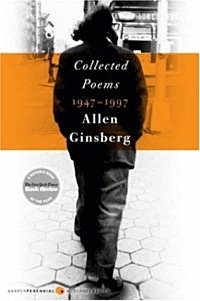 As the chief figure among the Beats, Ginsberg changed the course of American poetry, liberating it from closed academic forms with the creation of open, vocal, spontaneous, and energetic postmodern verse. Ginsberg’s raw tones and attitudes of spiritual liberation also helped catalyze a psychological revolution that has become a permanent part of our cultural heritage, profoundly influencing not only poetry, popular song, and speech but also our view of the world.
As the chief figure among the Beats, Ginsberg changed the course of American poetry, liberating it from closed academic forms with the creation of open, vocal, spontaneous, and energetic postmodern verse. Ginsberg’s raw tones and attitudes of spiritual liberation also helped catalyze a psychological revolution that has become a permanent part of our cultural heritage, profoundly influencing not only poetry, popular song, and speech but also our view of the world.
Allen Ginsberg (1926 – 1997) was the son of Naomi Ginsberg, Russian émigré, and Louis Ginsberg, lyric poet and school teacher, in Paterson, N.J. To these facts Ginsberg adds: “High school in Paterson till 17, Columbia College, merchant marine, Texas and Denver copyboy, Times Square, amigos in jail, dishwashing, book reviews, Mexico City, market research, Satori in Harlem, Yucatan and Chiapas 1954, West Coast 3 years. Later Arctic Sea trip, Tangier, Venice, Amsterdam, Paris, read at Oxford Harvard Columbia Chicago, quit, wrote “Kaddish” 1959, made tape to leave behind & fade in Orient awhile. Carl Solomon to whom “Howl” is addressed, is a intuitive Bronx dadaist and prose-poet.”
Title: Collected Poems 1947-1997
Author: Allen Ginsberg
Publisher: Harper Perennial Modern Classics
Title First Published: 2007
Format: Paperback
ISBN-10 0061139750
ISBN-13 9780061139758
1216 pages
$25.99
poetry books
fleursdumal.nl magazine
More in: #Beat Generation Archives, - Book News, Archive G-H, Archive G-H, Ginsberg, Allen
For the first time in a quarter century, a major new volume of translations of the beloved poetry of Federico García Lorca, presented in a beautiful bilingual edition.
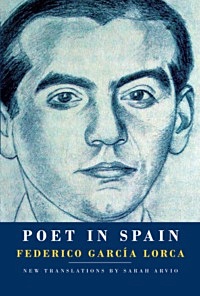 The fluid and mesmeric lines of these new translations by the award-winning poet Sarah Arvio bring us closer than ever to the talismanic perfection of the great García Lorca. Poet in Spain invokes the “wild, innate, local surrealism” of the Spanish voice, in moonlit poems of love and death set among poplars, rivers, low hills, and high sierras.
The fluid and mesmeric lines of these new translations by the award-winning poet Sarah Arvio bring us closer than ever to the talismanic perfection of the great García Lorca. Poet in Spain invokes the “wild, innate, local surrealism” of the Spanish voice, in moonlit poems of love and death set among poplars, rivers, low hills, and high sierras.
Arvio’s ample and rhythmically rich offering includes, among other essential works, the folkloric yet modernist Gypsy Ballads, the plaintive flamenco Poem of the Cante Jondo, and the turbulent and beautiful Dark Love Sonnets—addressed to Lorca’s homosexual lover—which Lorca was revising at the time of his brutal political murder by Fascist forces in the early days of the Spanish Civil War.
Here, too, are several lyrics translated into English for the first time and the play Blood Wedding—also a great tragic poem. Arvio has created a fresh voice for Lorca in English, full of urgency, pathos, and lyricism—showing the poet’s work has grown only more beautiful with the passage of time.
Federico Garcia Lorca may be Spain’s most famous poet and dramatist of all time. Born in Andalusia in 1898, he grew up in a village on the Vega and in the city of Granada.
His prolific works, known for their powerful lyricism and an obsession with love and death, include the Gypsy Ballads, which brought him far-reaching fame, and the homoerotic Dark Love Sonnets, which did not see print until almost fifty years after his death.
His murder in 1936 by Fascist forces at the outset of the Spanish Civil War became a literary cause célébre; in Spain, his writings were banned. Lorca’s poems and plays are now read and revered in many languages throughout the world.
Poet in Spain
By Federico Garcia Lorca
Translated by Sarah Arvio
Category: Poetry
Hardcover
Nov 07, 2017
576 Pages
$35.00
Published by Knopf
ISBN 9781524733117
new books
fleursdumal.nl magazine
More in: - Book News, Archive G-H, Archive G-H, Art & Literature News, Garcia Lorca, Federico, WAR & PEACE
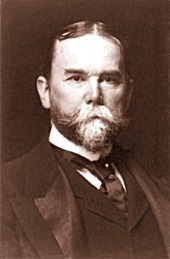
Euthanasia
Take from my hand, dear love, these opening flowers.
Afar from thee they grew, ‘neath alien skies
Their stems sought light and life in humble wise,
Fed by the careless suns and vagrant showers.
But now their fate obeys the rule of ours.
They pass to airs made glorious by thine eyes.
Smit with swift joy, they breathe, in fragrant sighs,
Their souls out toward thee in their last glad hours,
Paying leal tribute to a brighter bloom.
Thus, and not other, is the giver’s fate.
Through years unblest by thee, a cheerless path,
A checkered maze of common glare and gloom,
He came to know in rapture deep though late
How thou couldst brighten life and gentle death.
John Hay
(1838-1905)
Euthanasia
fleursdumal.nl magazine
More in: Archive G-H, Archive G-H, CLASSIC POETRY
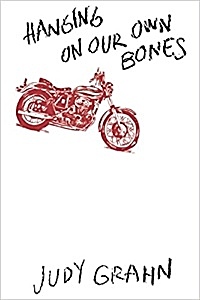 Through these seven narrative poems, Grahn weaves real-life conditions with goddess mythology to construct modern interpretations of lamentation in nine parts.
Through these seven narrative poems, Grahn weaves real-life conditions with goddess mythology to construct modern interpretations of lamentation in nine parts.
Song and poem lamentations have a widespread history from all over the globe and carry a wealth of forms and a few requirements―they must read well out loud, they must address current pressing issues, and they must make every attempt to be truthful.
Here Grahn’s steadfast and rhythmic verse directs our eyes to crucial yet often buried tribulations of our times by critiquing white supremacy, honoring battered women, exalting the powers of menstruation, conflating all labor with birth imagery, and revealing lateral hostilities among potential allies―all in order to arouse a meaningful social critique.
Title: Hanging On Our Own Bones
Subtitle: Poems
Author: Judy Grahn
Publisher: Red Hen Press
Title First Published 15 August 2017
Format: Paperback
ISBN-10 0989036138
ISBN-13 9780989036139
Publication Date: 15 August 2017
Price: $18.95
new poetry books
fleursdumal.nl magazine
More in: - Book News, - Book Stories, Archive G-H, Archive G-H, Art & Literature News

The Prairie
The skies are blue above my head,
The prairie green below,
And flickering o’er the tufted grass
The shifting shadows go,
Vague-sailing, where the feathery clouds
Fleck white the tranquil skies,
Black javelins darting where aloft
The whirring pheasant flies.
A glimmering plain in drowsy trance
The dim horizon bounds,
Where all the air is resonant
With sleepy summer sounds,
The life that sings among the flowers,
The lisping of the breeze,
The hot cicala’s sultry cry,
The murmurous dream of bees.
The butterfly a flying flower
Wheels swift in flashing rings,
And flutters round his quiet kin,
With brave flame-mottled wings.
The wild Pinks burst in crimson fire,
The Phlox’ bright clusters shine,
And Prairie-Cups are swinging free
To spill their airy wine.
And lavishly beneath the sun,
In liberal splendor rolled,
The Fennel fills the dipping plain
With floods of flowery gold;
And widely weaves the Iron-Weed
A woof of purple dyes
Where Autumn’s royal feet may tread
When bankrupt Summer flies.
In verdurous tumult far away
The prairie-billows gleam,
Upon their crests in blessing rests
The noontide’s gracious beam.
Low quivering vapors steaming dim
The level splendors break
Where languid Lilies deck the rim
Of some land-circled lake.
Far in the East like low-hung clouds
The waving woodlands lie;
Far in the West the glowing plain
Melts warmly in the sky.
No accent wounds the reverent air,
No footprint dints the sod,-
Lone in the light the prairie lies,
Rapt in a dream of God.
Illinois, 1858
John Hay
(1838-1905)
The Prairie
fleursdumal.nl magazine
More in: Archive G-H, Archive G-H, Natural history, Western Fiction
Als erfolgreicher Autor des berühmten S. Fischer Verlags, dem er seit 1904 angehörte, war Hermann Hesse (1877-1962) in besonderer Weise mit Berlin verbunden, wenngleich er selbst nur ganz selten hier war.
 Die Machtübernahme durch die Nationalsozialisten hatte auch für Hesse, der seit 1924 wieder Schweizer Staatsbürger war und im Tessin lebte, weitreichende Konsequenzen, da ihn die Bindung an seinen Berliner Verlag in Abhängigkeit vom nationalsozialistischen Regime brachte, dessen Propagandisten ihn anfangs diffamierten und später ausmanövrierten.
Die Machtübernahme durch die Nationalsozialisten hatte auch für Hesse, der seit 1924 wieder Schweizer Staatsbürger war und im Tessin lebte, weitreichende Konsequenzen, da ihn die Bindung an seinen Berliner Verlag in Abhängigkeit vom nationalsozialistischen Regime brachte, dessen Propagandisten ihn anfangs diffamierten und später ausmanövrierten.
Einflussreiche emigrierte Publizisten indessen verurteilten aufs schärfste, dass Hesse nicht gegen die Veröffentlichung seiner Bücher und Texte in Deutschland vorging und sich nicht ausschließlich zur deutschen Exilliteratur bekannte.
Redakteure Schweizer Zeitungen wiederum warfen Hesse mangelndes Verständnis des Schweizer Antisemitismus vor, der Anfang 1936 eine Niederlassung in Zürich des ins Exil getriebenen Teils des S. Fischer Verlags unausgesprochen mit verhindert hatte.
Fokussiert auf die Jahre von 1933 bis 1947, thematisiert die Ausstellung anhand vieler bislang unbekannter Materialien die vielschichtigen Verflechtungen, die Hesse zwischen der Schweiz, der deutschen Emigration und der Diktatur in Deutschland buchstäblich „zwischen die Fronten“ geraten ließ.
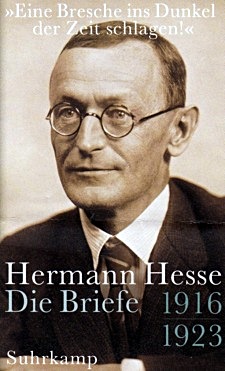 Anlass für die Ausstellung ist die Möglichkeit, aus dem umfangreichen, bislang unveröffentlichten Briefwechsel Hesses mit seinem jüngsten Sohn Martin (1911-1968) einige ausgewählte Briefe präsentieren und dem Zeitgeschehen zuordnen zu können. Im Frühjahr 1932 hatte Martin Hesse noch einen Vorkurs am Bauhaus in Dessau belegen können und erlebte dort die politische Radikalisierung Deutschlands.
Anlass für die Ausstellung ist die Möglichkeit, aus dem umfangreichen, bislang unveröffentlichten Briefwechsel Hesses mit seinem jüngsten Sohn Martin (1911-1968) einige ausgewählte Briefe präsentieren und dem Zeitgeschehen zuordnen zu können. Im Frühjahr 1932 hatte Martin Hesse noch einen Vorkurs am Bauhaus in Dessau belegen können und erlebte dort die politische Radikalisierung Deutschlands.
In die Schweiz zurückgekehrt, entwickelte Martin Hesse aus der am Bauhaus angeregten Beschäftigung mit der Fotografie eine professionelle Passion: Von ihm stammen die beeindruckenden Aufnahmen der Kunstdenkmäler des Kantons Bern und unzählige Fotos seines berühmten Vaters.
Die Ausstellung setzt mit einem Rückblick auf Hesses erste Frau Maria (Mia), geb. Bernoulli (1868-1963), ein, mit der er bis 1912 in Gaienhofen am Bodensee gelebt hatte. Maria Bernoulli gilt als die erste Schweizer Berufsfotografin, zusammen mit ihrer Schwester unterhielt sie von 1902 bis 1907 ein Fotoatelier in Basel.
Eine Ausstellung des Literaturhauses Berlin
Konzipiert von Lutz Dittrich mit Unterstützung durch Gunnar Decker und Volker Michels
Mitarbeit: Sebastian Januszewski
Ausstellungsgestaltung: unodue { (Costanza Puglisi und Florian Wenz)
Einen Folder mit umfangreichen Informationen über die Ausstellung finden Sie auch hier.
Die zur Ausstellung erscheinende Begleitpublikation
Zwischen den Fronten. Der Glasperlenspieler Hermann Hesse enthält einige ausgewählte Abdrucke aus dem Briefwechsel Hermann Hesses mit seinem Sohn Martin sowie Originalbeiträge von Jan-Pieter Barbian (Publizist), Gunnar Decker (Hesse-Biograph), Michael Kleeberg (Schriftsteller und Übersetzer) und Volker Michels (Hesse-Herausgeber).
In der Ausstellung erhältlich.
Hg. von Lutz Dittrich.
12.- Euro.
ISBN 978-3-926433-57-2
14 Dez – 11 Mär 2017
Grosser und Kleiner Saal
Ausstellung im Literaturhaus
Zwischen den Fronten.
Der Glasperlenspieler Hermann Hesse
LiteraturHausBerlin
Fasanenstraße 23
10719 Berlin
fleursdumal.nl magazine
More in: - Book News, - Book Stories, Archive G-H, Archive G-H, Art & Literature News, Hermann Hesse, Hesse, Hermann
Chinaka Hodge came of age along with hip-hop—and its influence on her suitors became inextricable from their personal interactions.
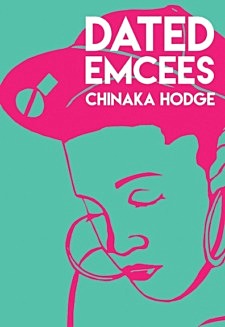 Form blends with content in Dated Emcees as she examines her love life through the lens of hip-hop’s best known orators, characters, archetypes and songs, creating a new and inventive narrative about the music that shaped the craggy heart of a young woman poet, just as it also changed the global landscape of pop.
Form blends with content in Dated Emcees as she examines her love life through the lens of hip-hop’s best known orators, characters, archetypes and songs, creating a new and inventive narrative about the music that shaped the craggy heart of a young woman poet, just as it also changed the global landscape of pop.
“This is an absolute powerhouse of a book, and a new pinnacle for Chinaka Hodge. There’s enough beauty and heartbreak and melancholy and humor and sorrow in here for three collections, or two lifetimes. Hodge’s writing is so incredibly specific but somehow universal, so honest and raw but somehow polished to unimproveability. She deserves a wide audience, an attentive audience, an audience that wants to be astounded.”––Dave Eggers, author of The Circle
Chinaka Hodge is a poet, educator, playwright and screenwriter. Originally from Oakland, California, she graduated from NYU’s Gallatin School of Individualized Study in May of 2006, and was honored to be the student speaker at the 174th Commencement exercise. In 2010, Chinaka received USC’s prestigious Annenberg Fellowship to continue her studies at its School of Cinematic Arts. She received her MFA in Writing for Film and TV in 2012. In the fall of that year, she received the SF Foundation’s Phelan Literary Award for emerging Bay Area talent. Chinaka was also a 2012 Artist in Residence at The Headlands Center for the Arts in Marin, CA.
In January 2013, Hodge was a Sundance Feature Film lab Fellow for her script, “700th&Int’l.” In June of 2013 Chinaka began as a first year fellow at Cave Canem’s prestigious summer retreat.
For over a decade, Hodge has worked in various capacities at Youth Speaks/The Living Word Project, the nation’s leading literary arts non-profit. During her tenure there, Chinaka served as Program Director, Associate Artistic Director, and worked directly with Youth Speaks’ core population as a teaching artist and poet mentor. She has acted in comparable capacities in New York and Los Angeles at Urban Word NYC and Get Lit: Words Ignite. When not educating or writing for the page, Chinaka rocks mics as a founding member of a collaborative hip hop ensemble, The Getback. Her poems, editorials, interviews and prose have been featured in Newsweek, San Francisco Magazine, Believer Magazine, PBS, NPR, CNN, C-Span, and in two seasons of HBO’s Def Poetry.
Title: Dated Emcees
Author: Chinaka Hodge
Collection City Lights/Sister Spit
Publisher City Lights Publishers
Published 2016
Paperback
ISBN-10 0872867021
ISBN-13 9780872867024
64 pages
# More on website Chinaka Hodge
fleursdumal.nl magazine
More in: - Book News, Archive G-H, Art & Literature News, MODERN POETRY
Thank you for reading Fleurs du Mal - magazine for art & literature